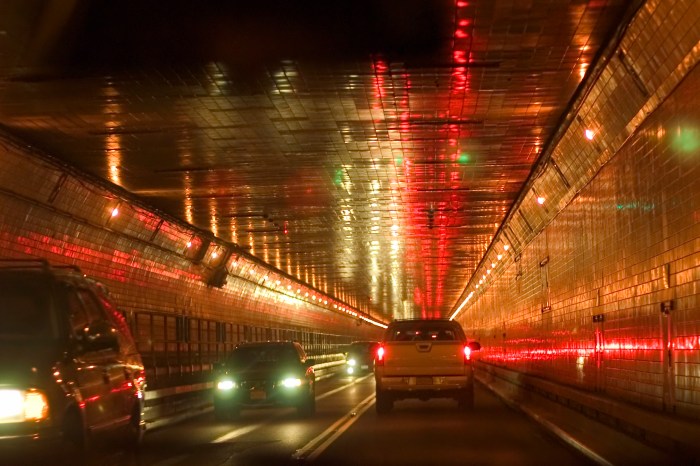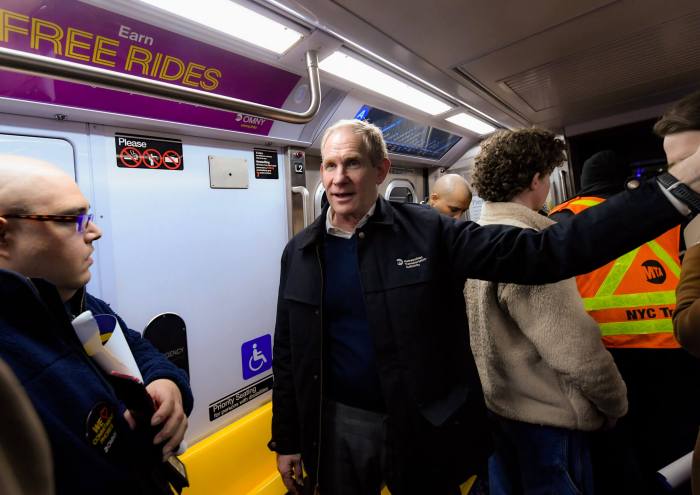The state spending plan that passed early Wednesday still leaves unanswered how billions of dollars of transit improvements will be funded, according to budget watchers.
Most of the MTA’s $32 billion plan for upgrading transportation over the next five years, such as new subway cars, tracks, signal systems and station repairs, is focused on keeping the aging system in a state of good repair. But MTA officials have said the agency needs to come up with $15 billion to fully fund the program.
How to generate more revenue for the MTA remains an open question.
“It’s the elephant in the room,” said Nadine Lemmon, New York and federal policy coordinator with the Tri-State Transportation Campaign.
“We have seen service go down, we have seen delays, there have been those horror stories that have been talked about,” she added. “The longer we have closed eyes and not looking at this problem, the worse it’s going to get.”
The budget state lawmakers and Gov. Andrew Cuomo passed provides $750 million, with $250 million for four new Metro-North stations in the east Bronx, a roughly $1 billion project.
Reps for Cuomo did not respond to requests for comment.
Charles Brescher, consulting co-director of research for the Citizens Budget Commission, estimated that the MTA would need $1 billion of new revenue to borrow enough money to cover its five-year plan. He warned that pushing the issue off could hamper the MTA in planning long-term work, like boosting subway service with modern signal equipment.
“We would like to see them get the money and put more of it into state of good repair work and signal system enhancements,” Brescher said.
There have been no shortage of ideas on raising the money — the CBC floated a new tax on vehicle miles traveled and traffic engineer Gridlock Sam Schwartz has revived congestion pricing — but there have been no commitments yet on raising new money from top state and city officials.
“We need for Gov. Cuomo and state lawmakers to take real action, and sooner rather than later,” said John Raskin, director of Riders Alliance, which recently collected subway riders’ tales of bad service. Without enough money, “there will be real consequences in the form of less service and higher fares.”

















